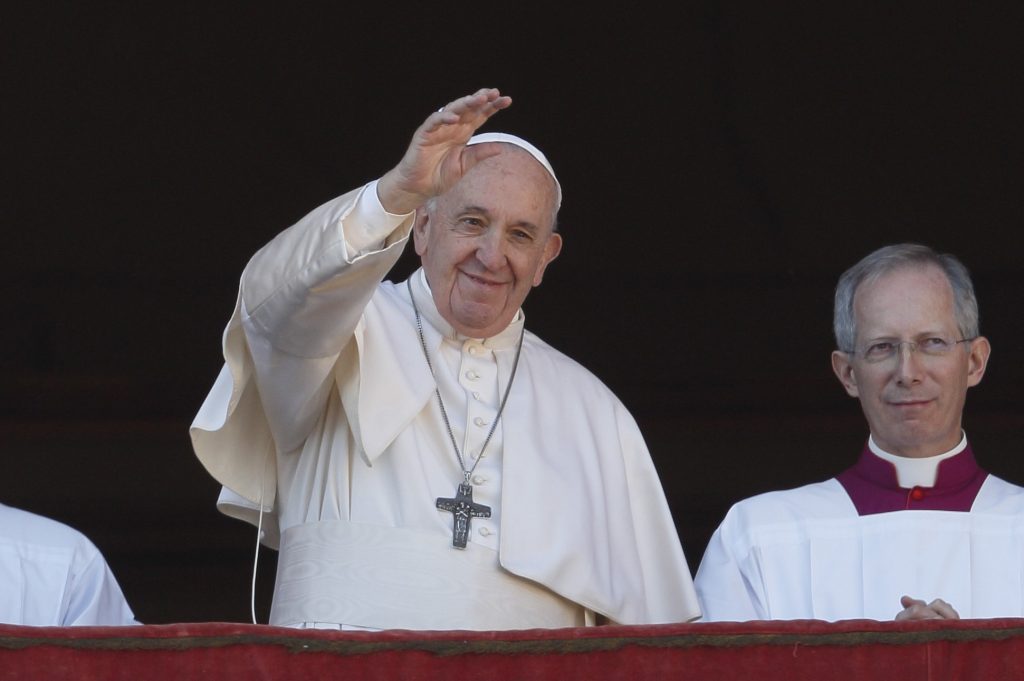53 years ago pope Paul VI started the tradition to celebrate the first day of the year as the WORLD DAY OF PEACE. From that time on unfortunately wars in the world have continue, violence and all forms of calamities have afflicted our “mother earth” in many parts of the world. In this situation many are discouraged and think that there is no hope any more.
Pope Francis on January 1, this new year, gave to the world the message: “PEACE IS A JOURNEY OF HOPE: DIALOGUE, RECONCILIATION AND ECOLOGICAL CONVERSION”.
This message helps us to deepen the theme of the year 2020 in the Philippines with the theme: “DIALOGUE TOWARDS HARMONY”.
With this spirit we present some points taken from the message of pope Francis, a religious leader who is giving us many signs of hope in his trips and messages including the document signed in Abu Dhabi, last February 4, with the grand Imam of the Al-Azhar, Ahmad Al-Tayyeb entitled “ HUMAN FRATERNITY FOR WORLD PEACE AND LIVING TOGETHER”. We share here few points of Pope Francis message of January 1, 2020:
1. Peace, a journey of hope in the face of obstacles and trial
Peace is a great and precious value, the object of our hope and the aspiration of the entire human family. As a human attitude, our hope for peace is marked by an existential tension that makes it possible for the present, with all its difficulties, to be “lived and accepted if it leads towards a goal, if we can be sure of this goal, and if this goal is great enough to justify the effort of the journey”. Hope is thus the virtue that inspires us and keeps us moving forward, even when obstacles seem insurmountable.
The terrible trials of internal and international conflicts, often aggravated by ruthless acts of violence, have an enduring effect on the body and soul of humanity. Every war is a form of fratricide that destroys the human family’s innate vocation to brotherhood.
War, as we know, often begins with the inability to accept the diversity of others, which then fosters attitudes of aggrandizement and domination born of selfishness and pride, hatred and the desire to caricature, exclude and even destroy the other. War is fueled by a perversion of relationships, by hegemonic ambitions, by abuses of power, by fear of others and by seeing diversity as an obstacle. And these, in turn, are aggravated by the experience of war…….
…We need to pursue a genuine fraternity based on our common origin from God and exercised in dialogue and mutual trust. The desire for peace lies deep within the human heart, and we should not resign ourselves to seeking anything less than this.
2. Peace, a journey of listening based on memory, solidarity and fraternity
….. The world does not need empty words but convinced witnesses, peacemakers who are open to a dialogue that rejects exclusion or manipulation. In fact, we cannot truly achieve peace without a convinced dialogue between men and women who seek the truth beyond ideologies and differing opinions….
….Divisions within a society, the increase of social inequalities and the refusal to employ the means of ensuring integral human development endanger the pursuit of the common good. Yet patient efforts based on the power of the word and of truth can help foster a greater capacity for compassion and creative solidarity.
3. Peace, a journey of reconciliation in fraternal communion
The Bible, especially in the words of the Prophets, reminds individuals and peoples of God’s covenant with humanity, which entails renouncing our desire to dominate others and learning to see one another as persons, sons and daughters of God, brothers and sisters. We should never encapsulate others in what they may have said or done, but value them for the promise that they embody. Only by choosing the path of respect can we break the spiral of vengeance and set out on the journey of hope….
4. Peace, a journey of ecological conversion
….This journey of reconciliation also calls for listening and contemplation of the world that God has given us as a gift to make our common home. We need to change the way we think and see things, and to become more open to encountering others and accepting the gift of creation, which reflects the beauty and wisdom of its Creator.
The Pope ends his message saying that “we obtain all that we hope for” if we go beyond the limits of our narrow horizons and constantly encourages us to a live in a spirit of universal fraternity, as children of the one heavenly Father.

